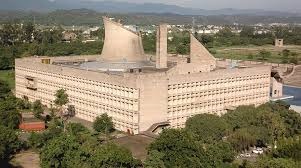NIA Conducts Statewide Raids in Punjab in Connection to Gurpatwant Singh Pannun Terror Probe
In a significant crackdown on terrorism, the National Investigation Agency (NIA) carried out a series of coordinated raids across multiple locations in Punjab on Tuesday. The raids were part of an ongoing investigation into terror activities linked to Gurpatwant Singh Pannun, the leader of the banned separatist group Sikhs for Justice (SFJ). Pannun has long been a wanted figure in India due to his involvement in promoting secessionist movements and calling for the creation of “Khalistan,” a separate state for Sikhs.
The NIA’s operations are believed to be a crucial step in dismantling a network of individuals involved in financing, promoting, and aiding terrorist activities. The raids spanned several districts, including Amritsar, Ludhiana, and Mohali, targeting suspects associated with Pannun’s organization and affiliates of other extremist groups.
Widespread Searches and Seizures
According to official sources, the NIA teams seized a range of incriminating materials during the raids, including documents, electronic gadgets, and financial records, which could be linked to terror funding. These materials are being thoroughly examined to identify further connections and collaborators. The agency has been intensifying its focus on breaking the chain of funding and support that terrorist organizations like SFJ rely on to operate.
The ongoing investigation is part of a larger effort by Indian authorities to clamp down on extremist elements working both domestically and internationally. Gurpatwant Singh Pannun, who is reportedly based outside India, has been a vocal advocate of Khalistan, regularly using social media platforms to propagate his separatist agenda and incite violence. The Indian government has declared SFJ an unlawful organization under the Unlawful Activities (Prevention) Act (UAPA), and Pannun himself has been designated as a terrorist under Indian law.
Focus on Disrupting Terror Funding
One of the primary objectives of the NIA’s probe is to trace the flow of funds that support the terror operations of groups like SFJ. Over the past several years, investigators have uncovered various networks of illegal funding, including money being funneled from overseas accounts to India through illicit channels. These funds are often used to finance anti-national activities, organize protests, and radicalize vulnerable youth to join the Khalistan movement.
The NIA has been working closely with international agencies to track and freeze accounts linked to these operations. It is also collaborating with cybercrime units to monitor online activities and communications that may be involved in spreading secessionist propaganda or coordinating violent actions.
Impact of the Khalistan Movement
The Khalistan movement has had a long history of disrupting peace in Punjab and neighboring states. Though the movement saw its peak in the 1980s, the resurgence of separatist sentiments, especially fueled by individuals like Gurpatwant Singh Pannun, poses a renewed threat to national security. His calls for Khalistan and support of violent extremism have prompted Indian authorities to take firm action, leading to a series of high-profile arrests and investigations.
Security agencies have expressed concern over Pannun’s use of social media to incite unrest and spread disinformation. His messages often target the Punjabi youth, trying to radicalize them through misinformation and conspiracy theories about government oppression and cultural erasure. Experts believe that cracking down on online propaganda is crucial in countering the narrative of separatist movements.
Government’s Firm Response
India’s Ministry of Home Affairs has reiterated its stance on terrorism, stating that the government is committed to ensuring the unity and integrity of the nation. The Home Ministry has praised the NIA’s proactive efforts in disrupting terrorist networks, noting that such actions are essential to maintain peace and order in Punjab and the broader region.
The central government has also urged cooperation between state and national agencies to share intelligence and resources, ensuring a coordinated approach to addressing terror-related activities. The continued raids signal a firm stance against any attempts to destabilize the region or foment anti-national sentiments.
As the investigation progresses, more details are expected to emerge about the individuals detained and the evidence seized. The NIA’s operations are likely to continue in the coming days as the agency intensifies its efforts to neutralize the threats posed by secessionist movements.



